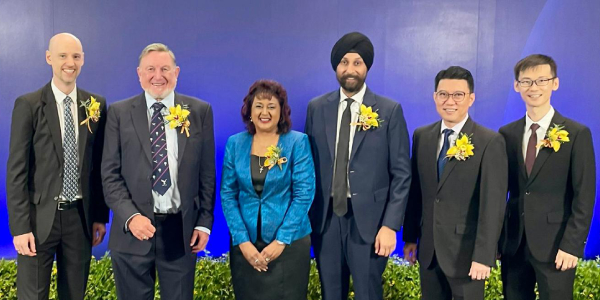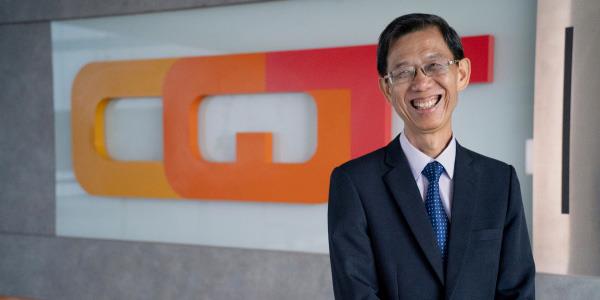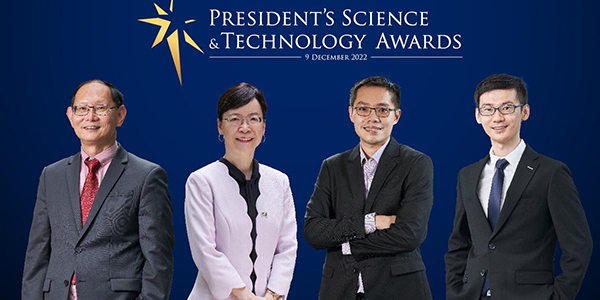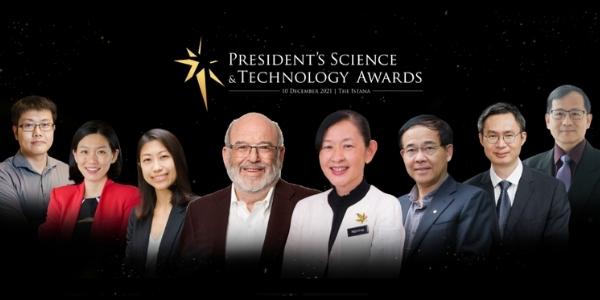Celebrating A*STAR’s 2025 PSTA and YSA Awardees
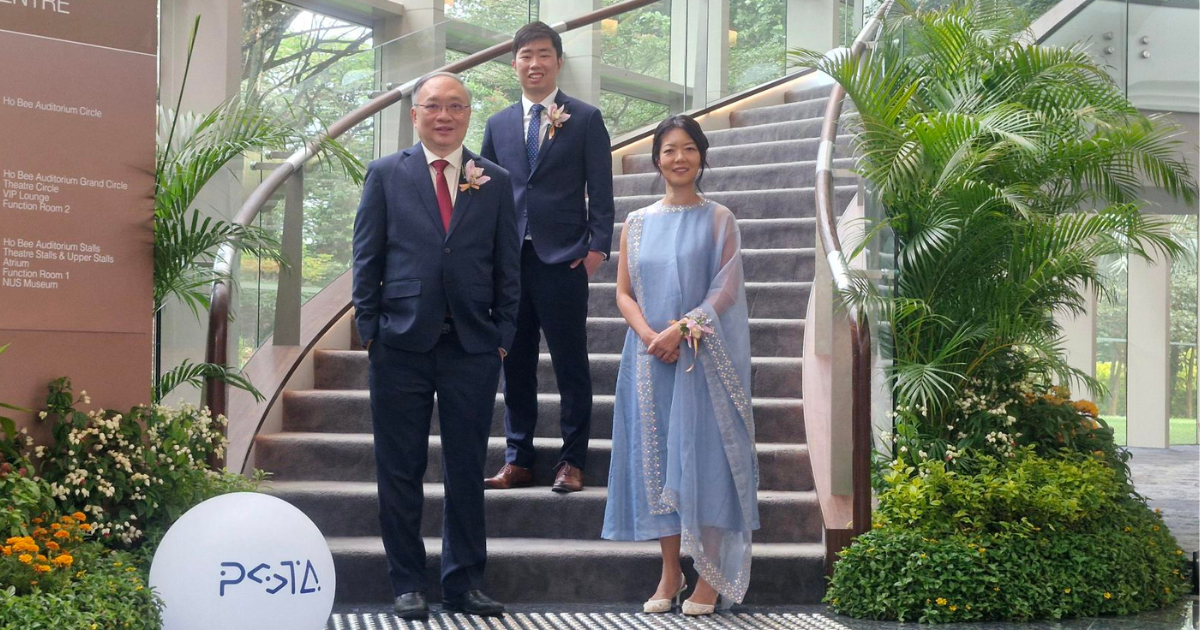
This year, three A*STAR researchers received Singapore’s highest accolades for science and technology at the President’s Science and Technology Awards (PSTA).
- Professor Lisa Ng — President’s Science Award
- Professor Ng Geok Ing — President’s Technology Award
- Dr Chan Yi Hao — Young Scientist Award
The PSTA, organised by the National Research Foundation (NRF), honours individuals and teams who have made exceptional contributions in advancing science and technology. The YSA, administered by the Singapore National Academy of Science (SNAS) with support from NRF, recognises researchers aged 40 and below who demonstrate strong potential to excel internationally.
President's Science Award (PSA)
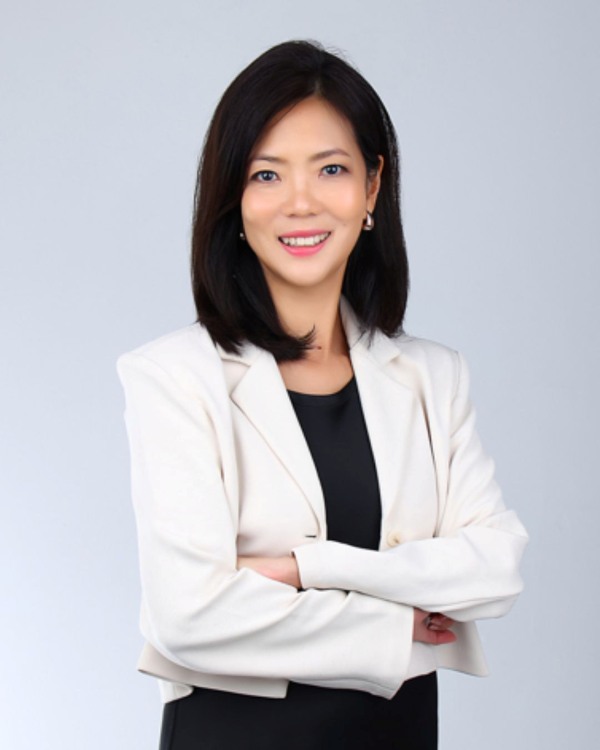
For her pioneering contributions to viral infection immunology and advancing global pandemic management through groundbreaking research on Arboviruses, in particular, Chikungunya.
- Professor Lisa Ng
Executive Director, A*STAR Infectious Diseases Labs (A*STAR IDL) and Biomedical Research Council (BMRC), A*STAR
Professor Lisa Ng is a world-leading scientist in infectious disease research, renowned for her discoveries in viral immunology and her leadership in strengthening global pandemic preparedness. Her passion for this field began as a young researcher witnessing the devastating effects of outbreaks. The 2003 SARS outbreak became a turning point, motivating her to study virus-immune system interactions and develop better tools for detection, management, and prevention.
Prof Ng played a critical role in developing one of the world's first SARS diagnostic kits and has since transformed understanding of immune responses in viral diseases. Her pioneering work on arboviruses such as Chikungunya identified immune signatures that predict disease outcomes, paving the way for improved diagnostics, vaccines, and therapeutics. During the COVID-19 pandemic, her team's data shaped Singapore's vaccination strategies, and she spearheaded A*STAR's high containment biosafety Level 3 (BSL-3) facility to strengthen national preparedness.
As Executive Director of the A*STAR Infectious Diseases Labs, Prof Ng drives global collaboration to address health priorities, including strategic alliance with Institut Pasteur Paris (2024) to advance surveillance and vaccine research. A passionate mentor, she has guided more than 20 PhD students and postdoctoral fellows, many of whom now lead their own programmes worldwide.
Read her full award citation.
President's Technology Award (PTA)
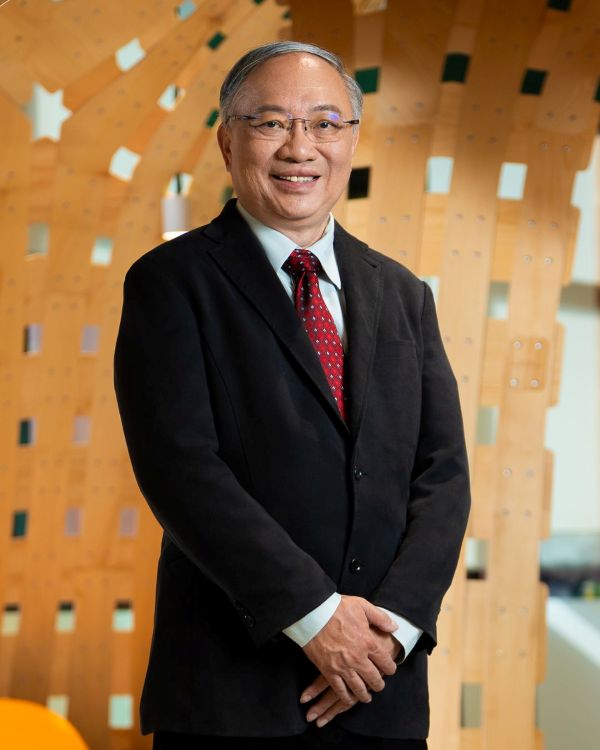
For his groundbreaking work in advancing Singapore's capabilities in radio-frequency Gallium Nitride (GaN) – an advanced III-V compound semiconductor technology – particularly in defence and commercial applications, by enabling local manufacturing capabilities and nurturing talents in this strategic field.
- Professor Ng Geok Ing
School of Electrical and Electronics Engineering, Nanyang Technological University Executive Director, National Semiconductor Translational and Innovation Centre, Gallium Nitride (NSTIC(GaN))
Professor Ng Geok Ing has been instrumental in advancing Singapore's national capabilities in III-V compound semiconductors, particularly Gallium Nitride (GaN). Over three decades, his work has spanned deep-tech research, talent development, industry translation, and ecosystem building, culminating in the creation of a national platform that positions Singapore among global leaders in GaN technology.
After returning from the USA in 1995, Prof Ng launched a national R&D programme at NTU, establishing Singapore's first III-V semiconductor infrastructure and training a core pool of engineers. He co-founded DenseLight Semiconductors in 2000, NTU's first semiconductor spin-off, which today supplies photonics components worldwide. In 2005, he set up the MMIC Design Centre with MINDEF support, where his team developed Singapore's first fully indigenous GaN MMIC power amplifier—now operating in space aboard a cubesat. His leadership has been recognised with multiple Defence Technology Prizes.
Looking beyond defence, Prof Ng has championed GaN for applications in 5G/6G telecommunications, automotive radar, and advanced instrumentation. In 2022, he led a multi-agency effort with the Agency for Science, Technology and Research (A*STAR), NTU, and DSO to establish the National Semiconductor Translation and Innovation Centre for GaN (NSTIC (GaN)), the world's first boutique foundry offering both 6-inch GaN-on-SiC and 8-inch GaN-on-Si wafer fabrication. He aims to position Singapore as a producer and global driver of GaN technologies.
Read his full award citation.
Young Scientist Award (YSA)
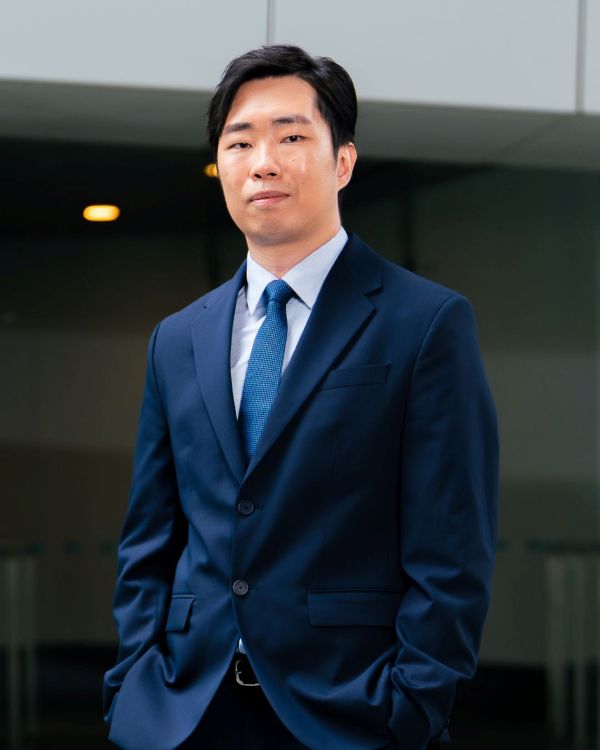
For his research on viral encephalitis, revealing how the brain defends itself from life-threatening viral infections.
- Dr Chan Yi Hao
Principal Investigator, A*STAR Infectious Diseases Labs
Dr Chan Yi Hao is a multidisciplinary biomedical researcher specialising in human immunogenetics and infectious diseases. His research seeks to understand why individuals respond differently to infections, uncovering genetic factors and immune mechanisms that shape susceptibility and outcomes.
Focusing on arthropod-borne viral diseases relevant to Singapore's tropical environment, Dr Chan has made landmark contributions in viral immunology and inborn errors of immunity. He identified a novel human restriction factor for HSV-1, revealing a new genetic cause of herpes-related brain infection. In another breakthrough, he showed how rare genetic conditions heighten vulnerability to SARS-CoV-2, causing severe neurological disease.
During the COVID-19 pandemic, Dr Chan played a key role in Singapore's response by characterising immune responses in patients and evaluating therapeutic drugs in collaboration with clinicians across Singapore’s hospitals. His findings guided clinical care and informed treatment strategies at a critical time.
Dr Chan has published in Nature, Science, and Cell, with a cover feature in the Journal of Experimental Medicine. A dedicated mentor and contributor to the scientific community, he has guided over 10 researchers and serves on the editorial boards of leading immunology journals.
Read his full award citation.
A*STAR celebrates International Women's Day

From groundbreaking discoveries to cutting-edge research, our researchers are empowering the next generation of female science, technology, engineering and mathematics (STEM) leaders.
Get inspired by our #WomeninSTEM

